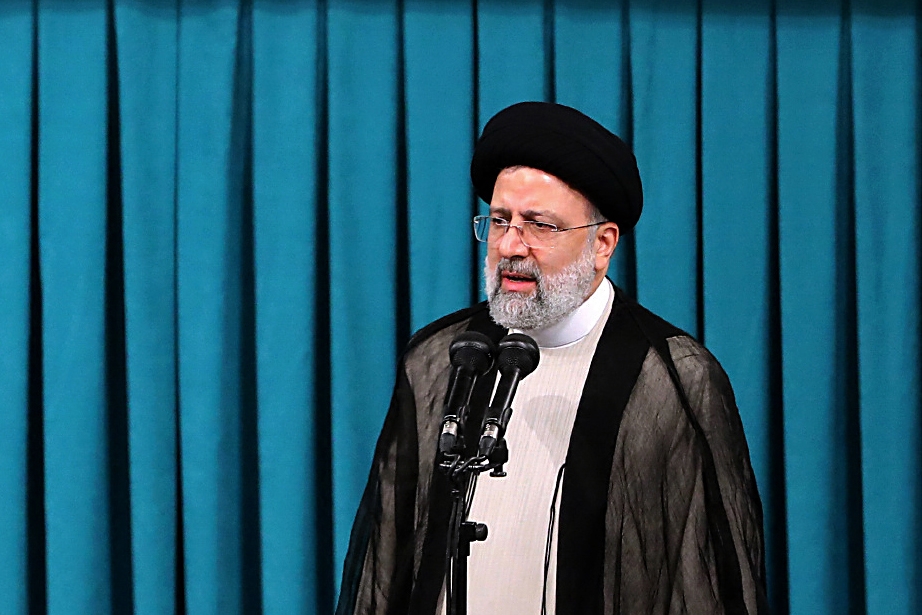Iran's incoming president vows to fight 'tyrannical' US sanctions

Iran's incoming president Ebrahim Raisi has promised to take steps to lift "tyrannical" sanctions imposed by the United States and improve the living conditions of Iranians, after securing the formal endorsement of the country's supreme leader to take office later this week.
Raisi, who himself is under personal US sanctions, said he would continue talks to issue a return to the 2015 nuclear agreement that lifted sanctions against Tehran after it scaled back its nuclear programme.
In 2018, the Trump administration withdrew from the agreement and reimposed crippling sanctions on Tehran. Iran initially continued to abide by the deal but has reduced some of its commitments since 2019.
"We will seek to lift the tyrannical sanctions imposed by America," Raisi said in a televised speech.
"But we will not tie the ... economy to the will of foreigners."
Stay informed with MEE's newsletters
Sign up to get the latest alerts, insights and analysis, starting with Turkey Unpacked
In his speech endorsing Raisi, Supreme Leader Ayatollah Ali Khamenei called on the new president to "empower lower-income people" by boosting the economy.
"I task the wise, indefatigable, experienced and popular ... Raisi as president of Iran," Khamenei said.
Iran and the P5+1, which includes the US, the UK, France, Germany, Russia and China, have been holding talks since April to revive the nuclear deal, but several complicated items remain unresolved.
A sixth round of indirect talks between Tehran and Washington in Vienna adjourned on 20 June, and the parties have yet to announce when they will resume.
Last month, US officials said that Tehran did not plan to return to the negotiating table until the new government formed by Raisi took office, although American and European partners were ready to enter the seventh round of negotiations.
Raisi's inauguration also comes at a time of heightened tensions between Iran and the West, as the US, Israel and Britain blamed Tehran for an attack last week on the Israeli-managed Mercer Street tanker off the coast of Oman.
Iran denies attacking the tanker and said on Monday it would respond promptly to any threat against its security.
Raisi was elected in June to replace Hassan Rouhani, the former president and architect of the nuclear deal.
He will be sworn in on Thursday and have one week to present his cabinet to parliament for a vote of confidence.
The swearing-in ceremony will be attended by Enrique Mora, a senior European Union official and Iran talks coordinator, a move that has been heavily criticised by Israel's foreign ministry.
Appointed by Khamenei to run the judiciary in 2019, Raisi, 60, was placed under US sanctions a few months later for the role he allegedly played in the executions of thousands of political prisoners in 1988. Iran has never acknowledged the killings.
Middle East Eye delivers independent and unrivalled coverage and analysis of the Middle East, North Africa and beyond. To learn more about republishing this content and the associated fees, please fill out this form. More about MEE can be found here.





